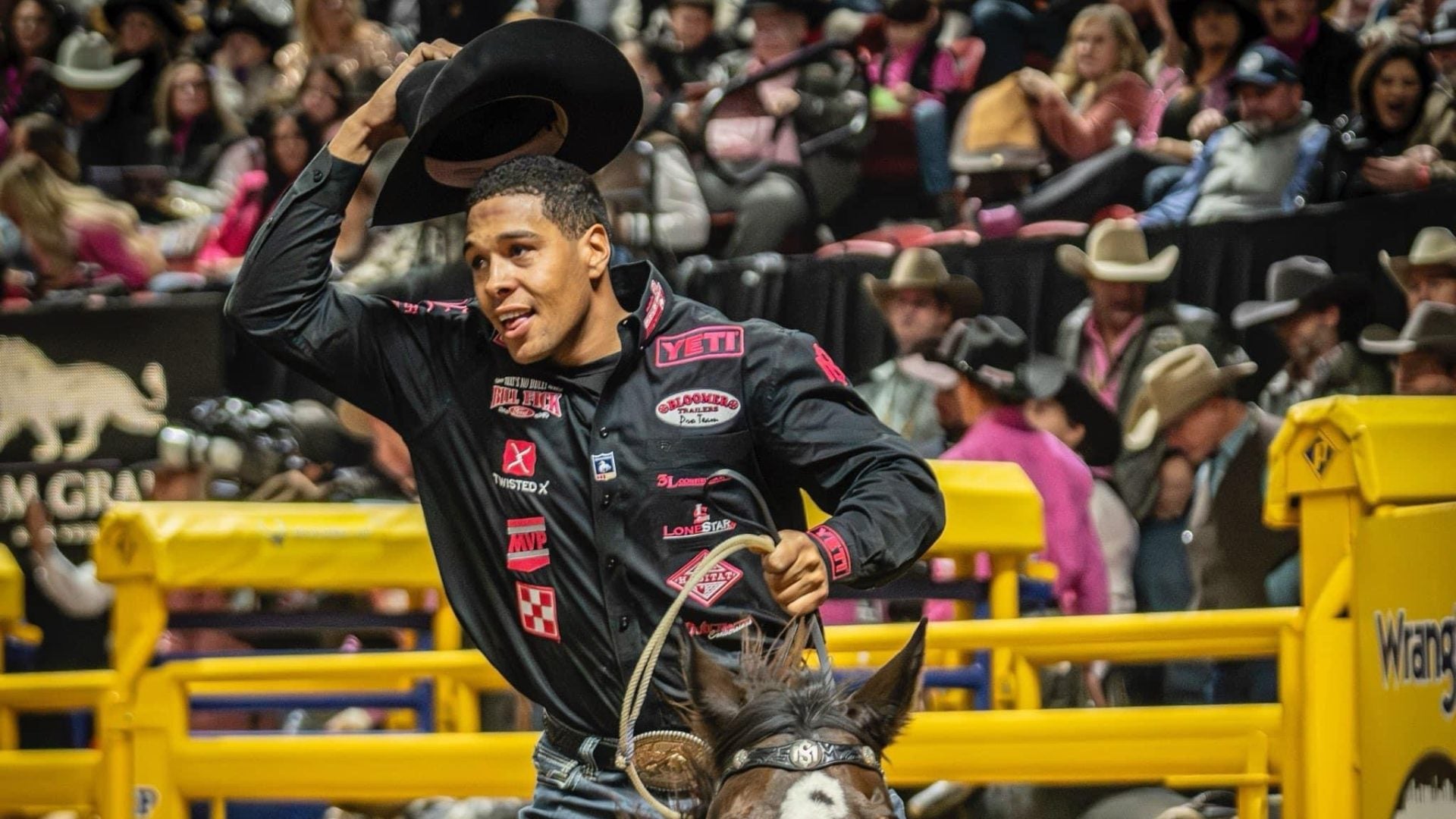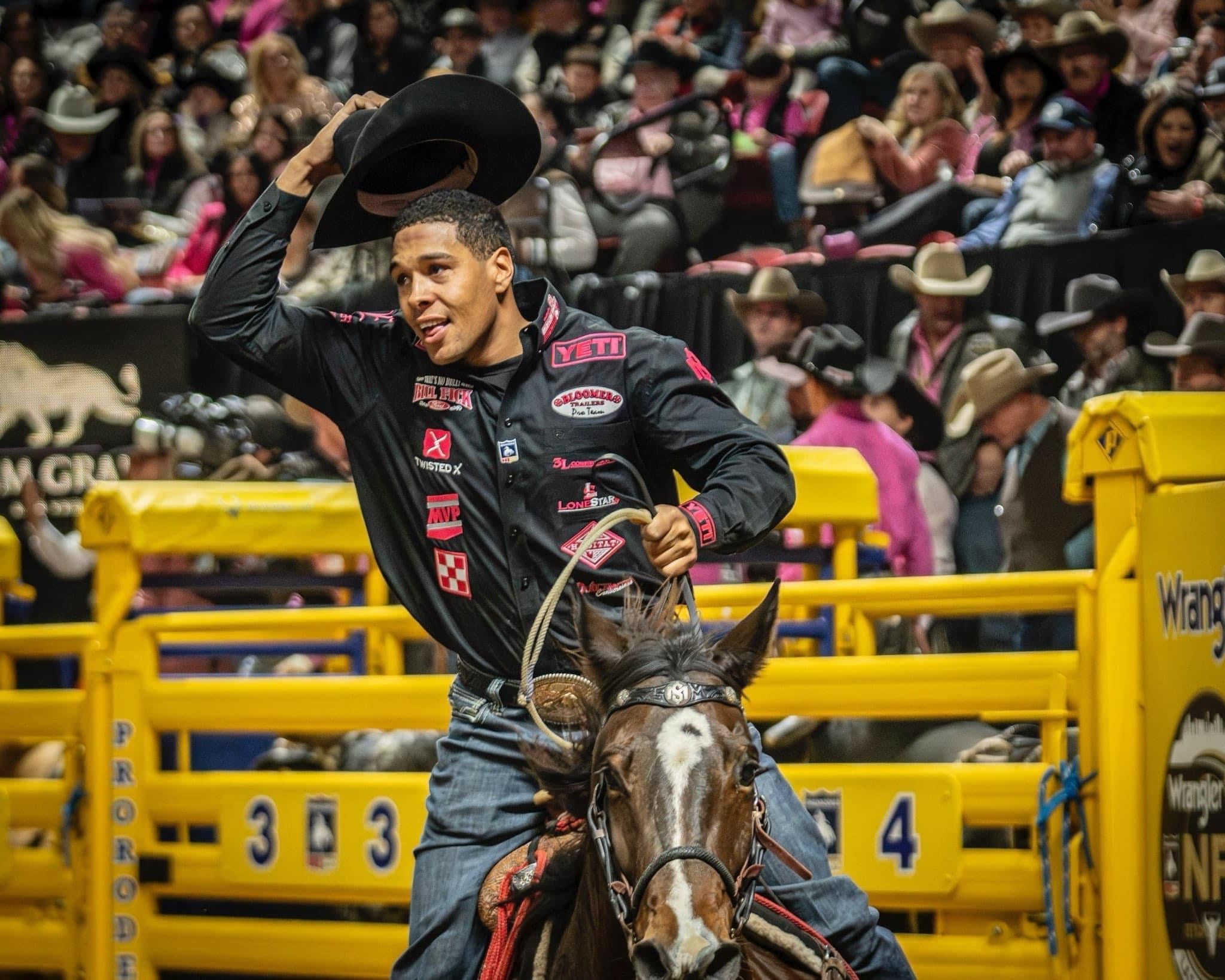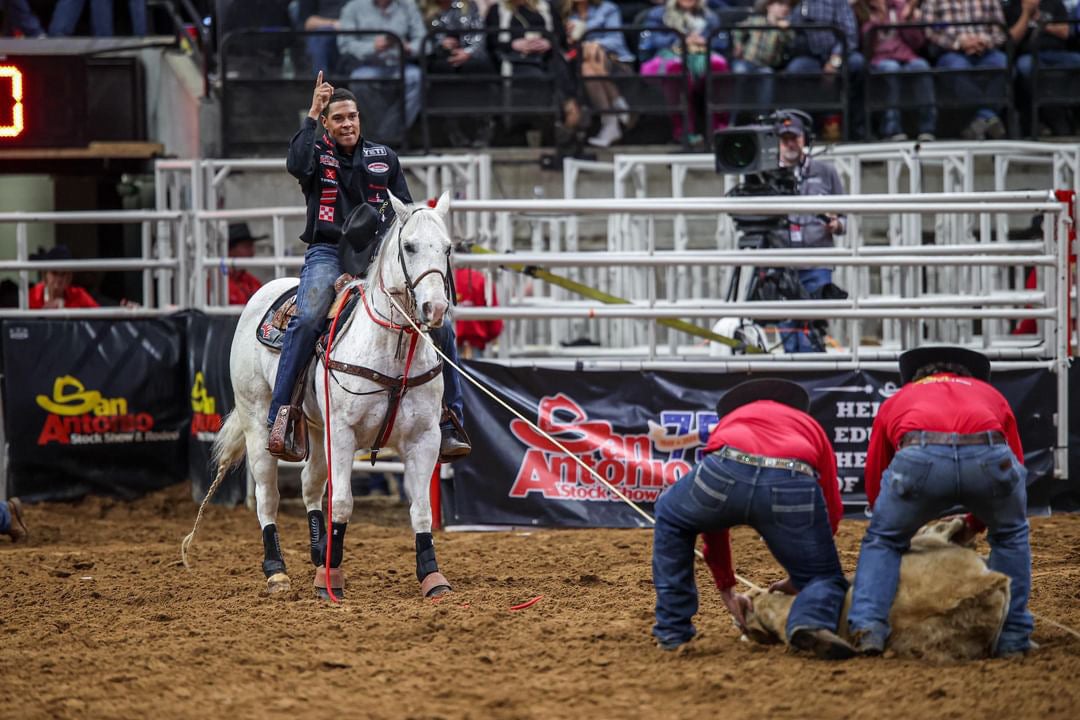
Amidst the twang of Beyoncé’s latest country singles, “Texas Hold ‘Em” and “16 Carriages,” and the allure of Pharell’s recent Western-inspired Louis Vuitton Fall-Winter 2024 collection, a tidal wave of Western wear and “Cowboy Core” fashion has swept through popular culture. Beyoncé’s tracks and Pharell’s designs have acted as a catalyst for this resurgence, igniting a passion for cowboy aesthetics that seamlessly blends tradition with modernity.
As this cultural frontier is just underway, it’s evident that “Cowboy Core” fashion is not just about clothing; it’s a celebration of the timeless rugged elegance of cowboy attire in an ever-evolving landscape of style. However, amidst this trend, there’s a crucial call to center and spotlight Black cowboys. These influential figures, often sidelined in mainstream narratives, hold the key to not only shaping fashion and pop culture but also exposing the undermined history of African Americans in the American West.
At the forefront of this movement is 23-year-old Tie-down roping champion, Shad Mayfield. Mayfield stands as a modern embodiment of a legacy stretching back to the 1800s when Black ranchers on the East Side of Texas hosted competitions known as the Sunday Special. This tradition, where cowboys would showcase their skills in a flurry of activity, roping and tying calves for a chance at the jackpot and bragging rights, is not just a part of Mayfield’s heritage—it’s the very essence of his being.

“I’ve loved rodeo since I was 2 years old, riding horses and swinging ropes. Watching my dad inspired me; it’s in our family, in our blood,” Mayfield said with southern charm.
Affectionately known as “Money Mayfield” for his top earnings on the circuit, and an ode to one of his favorite athletes boxing icon, Floyd Mayweather, Mayfield carries forward the spirit and determination of his ancestors, including his father, Sylvester Mayfield, a pioneering tie-down roper in the late 80s.
“I grew up watching my dad in rodeo. He was the first Black cowboy to make the national finals rodeo in tie-down roping, breaking barriers for many Black cowboys. His legacy inspires me and others like me to pursue our passions in rodeo,” Shad shared. His sister, Shelby, is also a professional cowgirl.
Mayfield clinched a victory at the 2020 San Antonio rodeo with a speedy time of 6.9 seconds, followed by a win at the Professional Rodeo Cowboys Association Tie Down Roper world championship, proudly sporting his winning trophy – a lavish gold buckle. Recently, at the San Antonio Stock & Rodeo Show, he impressed once again with a 7.2-second finish in the final round. Only two other Black cowboys, Cory Solomon and John Douch, competed.
Shad’s journey in the rodeo world is a testament to the deep-rooted connection between Black cowboys and their cultural and historical significance in the American West. His success is a continuation of a story that began with his forebears.
“In Hollywood, the West has been whitewashed. However, one in four cowboys that went up the trails was a Black cowboy, shared Ron Davis, curator of American History for the Witte Museum. “Black cowboys were integral to the growth of Texas’ cattle industry immediately after the Civil War.”
Black men, women and children-enslaved and free-labored on ranches and participated in cattle drives before the Civil War through the turn of the twentieth century. Black cowboys tamed and trained horses, tended livestock and rode the trail with thousands of cattle across America. Over time, the role of Black cowboys evolved as they used the skills they learned on the ranch to become lawmen, singers, actors and rodeo stars. Now, their legacies have and continue to inspire new generations to explore the past through music, film, design and fashion.
Mayfield says he’s “very big on fashion and style. Like Deon Sanders said, you look good, you feel good, you play good.”

This belief not only fuels his performances but also his approach to personal and team presentation, as seen in his careful coordination with his horses: “If I have a black shirt on, my horses will have black boots. We kind of match like that…because that’s my teammate,” he laughed.
This spirit of unity and synchronization was on display at the 2024 San Antonio Stock & Rodeo Show, where Mayfield sported a quintessentially American ensemble: donning relaxed white stitched jeans from Rock and Roll denim, an iconic black felt cowboy hat by American Hat Co, and sturdy boots with stunning leather pimpling from Twisted X Boots, embodying the essence of Western tradition.
As Western wear gains popularity, the contributions of Black cowboys offer rich inspiration for both fashion and popular culture. Local San Antonio designer Pat Moore of N-V-Us Fashions and Boutique, notes, “Black cowboys stand out because of who they are rather than what they wear. However, as African Americans, it just seems to be in most of our DNA to be unique and different and many of the Black cowboys’ fashion depicts that individuality.”
Despite the constraints placed by rodeo regulations, as outlined by the PRCA, which require contestants to be in “full western attire,” there is room for individual expression within these bounds.
“There are always pieces and materials that can be incorporated into traditional styles that ‘set apart’ or can change the traditional look. Leather is a stationary material but the designs, and embellishments can be varied,” Moore offered.
As Queen Bey continues to celebrate her Southern Texas roots, and cowboy hats become a staple of every occasion, let’s continue to shine a spotlight on the pivotal role of Black cowboys. Their contributions and stories are not just integral to shaping fashion but also to preserving a heritage often overlooked in mainstream narratives. So let’s saddle up, y’all, and ride into the future of fashion with Black cowboys leading the way.